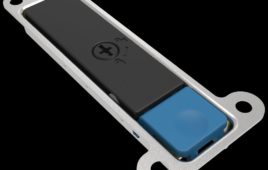Verizon’s lack of bids was one of the biggest surprises to come out of the FCC’s incentive auction closing public notice in recent weeks. As BTIG’s Walter Piecyk pointed out several times, Verizon’s lack of a significant auction deposit hinted the carrier wasn’t planning to spend big. But speculation has swirled as to exactly why Verizon decided to sit on the sidelines despite signing up for the game.
And now the carrier is putting the rumors to rest with a definitive answer pulled straight from Sprint’s repertoire: We don’t need the spectrum.
In a blog post, Verizon Chief Network Officer Nicola Palmer said 600 MHz spectrum just isn’t that much use to a carrier that already has a hefty amount of low band spectrum holdings.
“We have strong spectrum holdings in the 700, 850, 1900 megahertz (MHz)/PCS, AWS 1 and 3 spectrum bands. So why didn’t we bid on the 600 MHz spectrum? We simply don’t need it,” Palmer wrote. “We have sufficient spectrum holdings below 1 GHz. And the future use of 600 MHz spectrum – only good in the U.S. and not globally – will take some time to figure out and deploy widely, especially in busy urban locations.”
Taking a pot shot at up and coming rival T-Mobile, Palmer noted Verizon didn’t “desperately” need to spend $8 billion for 600 MHz because it already has nationwide coverage.
Palmer indicated Verizon already feels confident in its 700 MHz footprint for its LTE Advanced services and is in the process of deploying AWS 3 spectrum to boost its AWS 1 holdings. The carrier is also moving forward with its spectrum refarming process to upgrade underutilized 3G airwaves to 4G LTE, she said.
So instead of buying 600 MHz, Palmer noted Verizon is investing its dollars in spectrum and other assets for the future. By way of example, she pointed to Verizon’s recent deals with XO Communications and Corning to get its hands on 28 GHz and 39 GHz spectrum.
Palmer’s comments reinforce analysis delivered in an April 17 MoffettNathanson note, in which the firm observed Verizon’s lack of auction participation and acquisition moves give the appearance the carrier has already shifted its focus to 5G and has an “emerging preference” for millimeter wave spectrum. But, as the analysts pointed out, there are still a few ways to interpret Verizon’s spectrum views.
“There are two possible readings here. By one argument, Verizon’s isn’t kidding when they say that they have enough spectrum, and that their preference is now to densify their network, adding capacity surgically where they need it most,” MoffettNathanson analysts wrote in mid-April. “By another argument, however, Verizon’s decision to forgo the auction can only mean that they have a preference for mid-band spectrum instead. Dish bulls will, no doubt, argue that Verizon’s lack of participation can only point to a preference for Dish Network’s spectrum over more low band spectrum that they didn’t really need.”
Filed Under: Telecommunications (spectrums)




